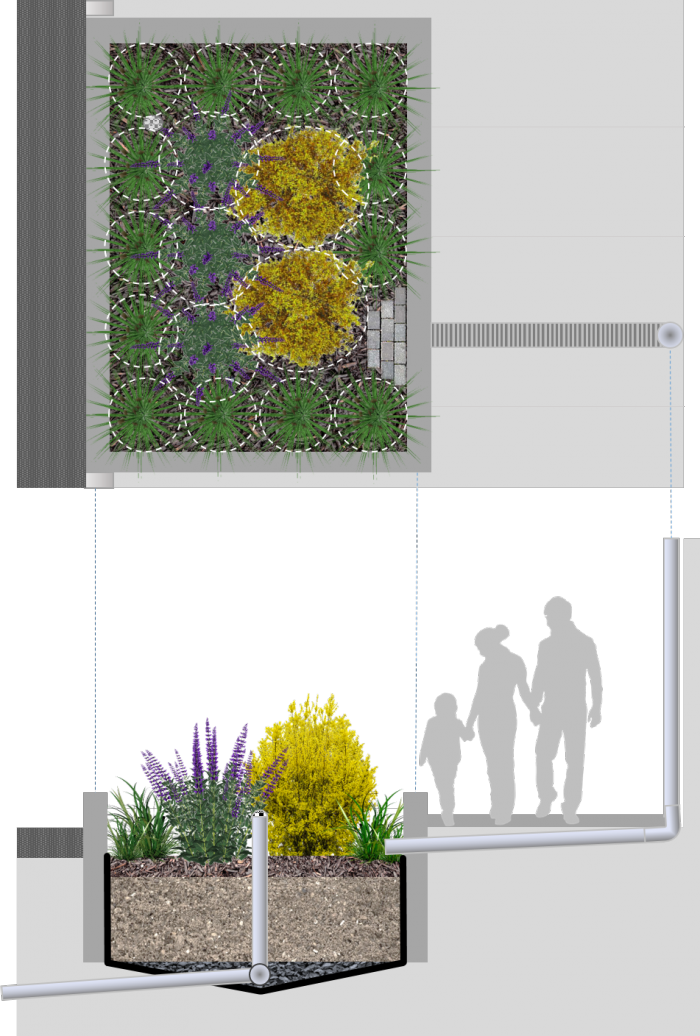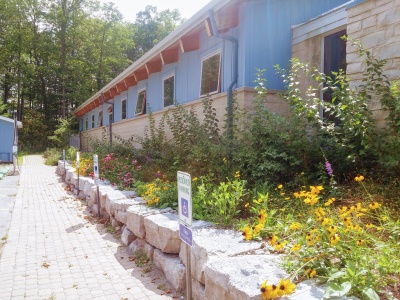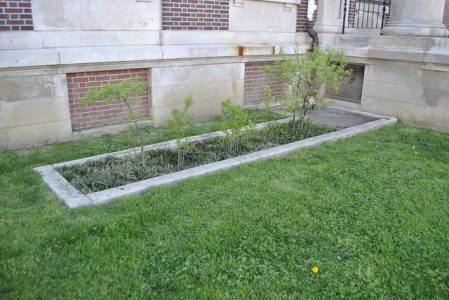Difference between revisions of "Stormwater planters"
Jenny Hill (talk | contribs) m (→See Also) |
Jenny Hill (talk | contribs) m |
||
| Line 1: | Line 1: | ||
<imagemap> | <imagemap> | ||
Image:Stormwater planter.png|thumb|700 px|This is an image map of a stormwater planter, clicking on components will load the appropriate article. | Image:Stormwater planter.png|thumb|700 px|This is an image map of a stormwater planter, clicking on components will load the appropriate article. | ||
circle 390 1042 75 [[Shrubs: List|Shrubs]] | circle 390 1042 75 [[Shrubs: List|Shrubs]] | ||
rect 469 507 316 169 [[Shrubs: List|Shrubs]] | rect 469 507 316 169 [[Shrubs: List|Shrubs]] | ||
| Line 18: | Line 17: | ||
Over subsurface infrastructure, soils prone to subsidence, or pollution hotspots, it may be necessary to prevent all infiltration. These BMPs can also be squeezed into tight urban spaces, adjacent to buildings and within the usual setbacks required for infiltrating facilities. | |||
Stormwater planters can also be used as a means of providing building-integrated LID by capturing a portion of the rainwater from the rooftop. | |||
==Performance== | ==Performance== | ||
Revision as of 19:45, 5 March 2018
Over subsurface infrastructure, soils prone to subsidence, or pollution hotspots, it may be necessary to prevent all infiltration. These BMPs can also be squeezed into tight urban spaces, adjacent to buildings and within the usual setbacks required for infiltrating facilities.
Stormwater planters can also be used as a means of providing building-integrated LID by capturing a portion of the rainwater from the rooftop.
Performance[edit]
Water quality [1]
Gallery[edit]
Stormwater planters are ideal for situating alongside buildings to capture rainwater from roof runoff. LSRCA headquarters, 2017.
Stormwater planter, treating downspout runoff, at Waterview Rec Center, Philidelphia
Photo credit: PWDRain garden, Illick Hall, SUNY College of Environmental Science and Forestry, Syracuse, NY
Photo credit: DASonnenfeld
See Also[edit]
- ↑ Macnamara, J.; Derry, C. Pollution Removal Performance of Laboratory Simulations of Sydney’s Street Stormwater Biofilters. Water 2017, 9, 907.;doi:10.3390/w9110907



